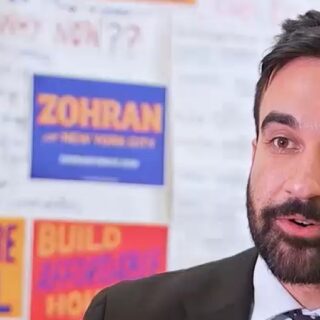
We make our choices today, thereby influencing the choices of our children. Christian education is a choice for which they will thank us for eternity.
What is good and what is bad? Vladimir Mayakovsky asked this question in a poem that all children in the Soviet Union knew by heart at the beginning of the last century. He answered it in a language accessible to children, giving many colorful, memorable examples.
Times are changing, and what was previously considered bad is now seen as the norm. What behavior is correct and what is unacceptable is decided differently in different societies and cultures. Often, a family defines its own concept of good and bad for its child. Parents who understand the value of high moral standards naturally have questions. How to make a child understand that smoking is bad when the strong guy on the TV screen does it in every commercial? How to explain that being insolent is not good when the hero of the next series has a sharp tongue?
You can discipline the mind, but what about the moral side of the individual? Children today, more than ever, need special education, since they are constantly bombarded with a powerful flow of information long before they acquire the ability to perceive it critically and, as a result, make the right choice.
Can we expect help from secular educational institutions? Most secular teachers see the student, first of all, as a future graduate, without caring about anything more. The curriculum of schools and universities becomes more complicated, but the number of hours required to master it remains the same. Communication between teacher and student comes down to only the mechanical transfer of information. There is practically no time left for the formation of moral values. What is the benefit to society of a gifted and educated person if he does not know how to love, if he is not sensitive to the experiences of his neighbor, if his individualism has turned into isolation and sometimes even into loneliness, which at any moment can develop into prolonged depression? The number of young people suffering from this disease is steadily increasing year by year.
Formation of values. We have come to the main problem discussed in this article. Education in Christian educational institutions is aimed at developing both universal and biblical values. The Christian concept of education states that the primary goal is the unique individual. In order to gain confidence, a child needs guidelines. He needs models to find himself. He needs knowledge to put his world in order. He needs conflicts to overcome himself. With extraordinary insight, Christian educator Jacques Maritain reminds us that ignoring the goal is a fatal mistake in education, which leads to an ordinary, mundane existence and does not allow a person to realize and discover the meaning of his existence.
A true ascent to the heights of wisdom is inseparable from the acquisition of knowledge, from the education of the will, from gaining freedom and contemplation of the Truth, that Truth which is Light and Life.
The advantage of a Christian education is obvious. Based on the Holy Scriptures, it provides knowledge while developing and strengthening moral values. Christian education, in addition to strengthening faith, contributes to the development of an integral, full-fledged personality that can make another person happy and be useful to society. This is clearly shown in the example below.
In 1874, sociologist Richard L. Dugdale, a member of the executive committee of the New York Prison Association, visited a prison in upstate New York. In a prison in Ulster County, he found six members of the same “Juke” (alias) family, although they used four different surnames. During the investigation, he found that of the 29 men “with direct blood connections,” 17 were arrested and 15 were convicted of crimes.
He examined the inmate records of thirteen county jails in New York State, as well as asylums and courts, and discovered that the thread led to the family of one Max, who was born between 1720 and 1740, and was the ancestor of more than 76 convicted criminals, 18 brothel keepers, 120 women in prostitution, more than 200 beneficiaries and 2 people diagnosed with “dementia”… Dugdale estimated for the New York State Legislature that the family cost the state $1,308,000 (about $20.9 million today according to the NY Times).
A contemporary of Max was Jonathan Edwards (1703–1758) — an American preacher from the city of Northampton, who advocated a return to the Puritan way of life of the early colonists. He was considered one of the greatest theologians and preachers of the Great Awakening. “By 1900, the total number of descendants of Jonathan Edwards was 1,394 people , among whom were: 1,295 college graduates, 13 heads of the most famous American colleges (in fact, universities), 65 high school teachers, 60 doctors, many of whom were outstanding, more than 100 clergy and theologians, 75 US Army and Navy officers, 60 famous writers, more than 100 practicing lawyers, 30 judges, 80 high-ranking officials (including one US Vice President), 3 members of the US Senate, several middle-ranking officials (nationally), as well as several railroad and bank managers , insurance companies and large industrial enterprises.
None of Edwards’ descendants were convicted of any crime. At least there is no evidence to the contrary.
We do not know whether Max was a Christian or not and how seriously he took religion, but as for Edwards, this is obvious: he is a minister whose direct and immediate responsibility was to educate others in obedience to God, directing them to the true path.
Jonathan Edwards and his descendants made a choice. We make our choices today, thereby influencing the choices of our children. Christian education is a choice for which they will thank us for eternity.





